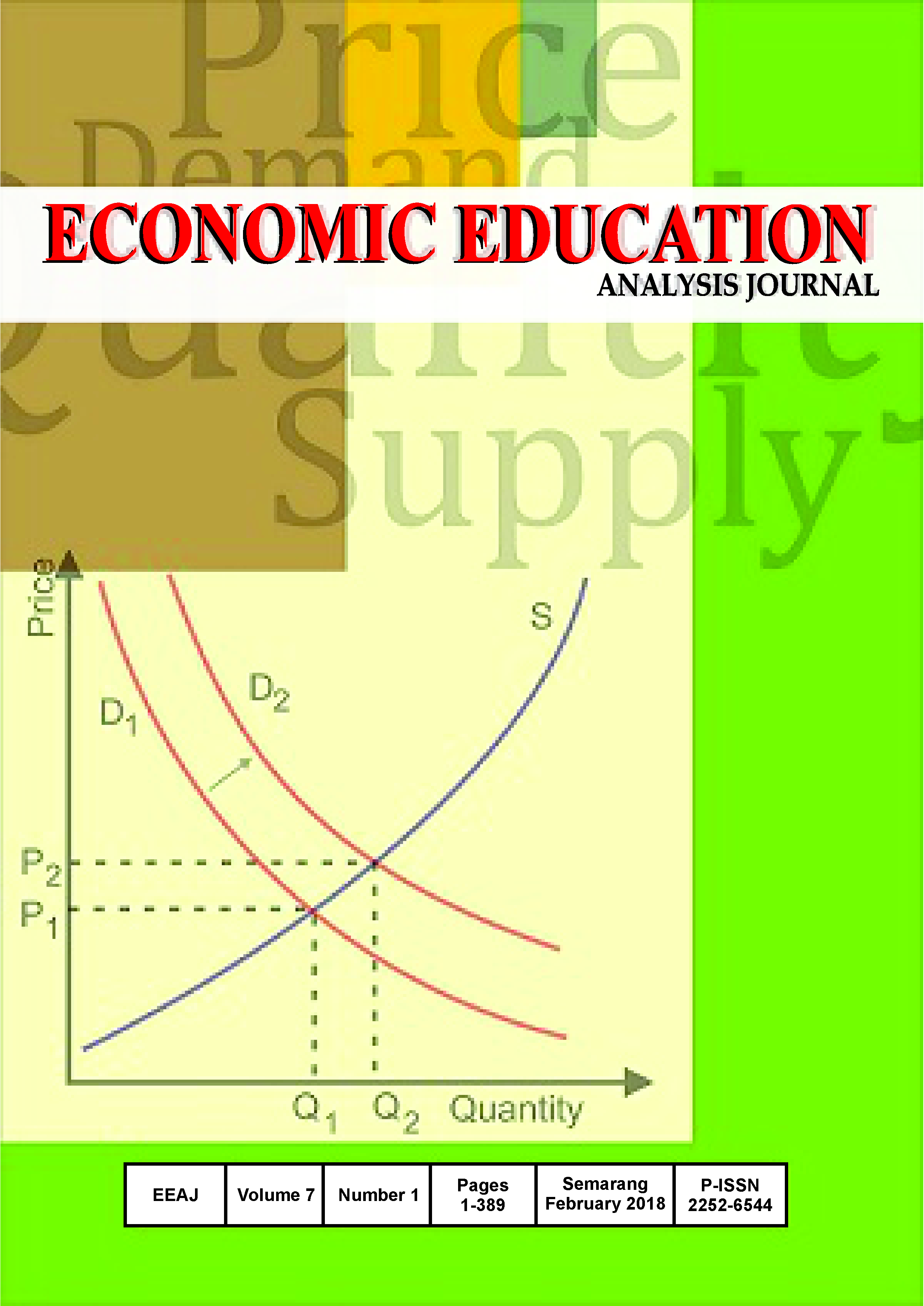PERAN KONTROL DIRI DALAM MEMEDIASI PENGARUH MOTIVASI BERPRESTASI, PERFEKSIONISME, DAN KESULITAN EKONOMI TERHADAP PROKRASTINASI AKADEMIK (Studi Kasus pada Mahasiswa yang Sedang Mengerjakan Skripsi FE UNNES)
Main Article Content
Abstract
Penelitian ini bertujuan untuk menguji pengaruh teori dan studi kasus motivasi berprestasi, perfeksionisme, dan kesulitan ekonomi terhadap prokrastinasi akademik serta untuk menguji variabel kontrol diri sebagai variabel mediasi. Hal tersebut, disebabkan oleh penurunan produktivitas dan etos kerja individu yang akhirnya menyebabkan kualitas sumber daya manusia menjadi rendah. Populasi pada penelitian ini adalah mahasiswa semester akhir (2010, 2011, 2012) yang sedang mengerjakan skripsi dengan masa studi lebih dari 4 tahun di Fakultas Ekonomi, Universitas Negeri Semarang. Metode pengumpulan data menggunakan kuesioner. Teknik pengambilan sampel menggunakan teknik convenience/judgmentsampling. Metode analisis data menggunakan analisis deskriptif, analisis regresi dan analisis path. Hasil penelitian menunjukkan bahwa (1) pengaruh secara simultan antar variabel (31,2%); (2) secara parsial motivasi berprestasi (18,8%), perfeksionisme (11,8%), kesulitan ekonomi (4,29%) berpengaruh positif pada kontrol diri; (3) secara parsial kontrol diri (5,29%) dan perfeksionisme (13%) berpengaruh negatif pada prokrastinasi akademik; (4) secara parsial motivasi berprestasi dan kesulitan ekonomi tidak berpengaruh pada prokrastinasi akademik; (5) kontrol diri mampu memediasi pengaruh motivasi berprestasi dan perfeksinisme pada prokrastinasi akademik; dan(6) kontrol diri tidak mampu memediasi pengaruh kesulitan ekonomi pada prokrastinasi akademik.
The aim of this research is to analyze the theoretical influence and case study related to achievement motivation, perfectionism and economic hardship towards academic procrastination and self control as intervening variable. It causes the decrease of productivity and individual work ethic so that it makes the quality of human resources are low. The population of the study was the final-year students (2010,2011,2012)doing final project more than 4 years in Economic Faculty, Semarang State University. Data is collected using questionnaires. Sampling using convenience sampling technique. In addition, the data is analyzed using descriptive analysis, regression analysis and path analysis. Hypothesis test results indicate that (1) there is simultaneous effect for each variables (31,2%); (2) partially achievement motivation (18,8%), perfectionism (11,8%) and economic hardship (4,29%) have positive and significant effect on self control; (3) partially self control (5,29%) and perfectionism (13%) have positive and significant impact on academic procrastination; (4) partially there isn’t influence of achievement motivation and economic hardship toward academic procrastination; (5) self control is able to mediate the effect achievement motivation and perfectionism on academic procrastination; (6) self control isn’t able to mediate the effect of economic hardship on academic procrastination
